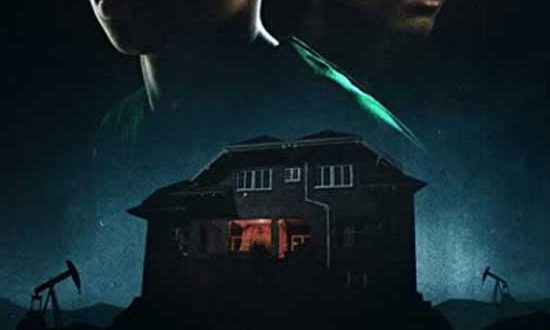Watch ‘The Lost Sons’ Review: A Documentary Mystery About a Kidnapped Baby

Table of Contents
“Watch Online ‘The Lost Sons’ Review: A Documentary Mystery About a Kidnapped Baby”
“‘The Lost Sons’ Review: A Documentary Mystery About a Kidnapped Baby”
You could feel the influence of “The Thin Blue Line” on a movie like “Capturing the Friedmans” (2003), but it’s only more recently that the documentary as suspense mystery has evolved into a fully fledged genre, much of it driven by long-form television and streaming serials. In film, the extraordinary success of “Three Identical Strangers,” in 2018, newly crystalized the lure of the form. It sent filmmakers out looking for stories that could make our jaws drops and our hearts swell at the same time. “The Lost Sons” is the latest example, and it’s a worthy and absorbing one that works in a nearly paradigmatic way. For a while, we’re bowled over by the sheer weirder-than-fiction flukiness of it. By the end, we’ve passed through the looking glass of the story’s peculiarity, and what grips us is the sheer humanity of it.
On April 27, 1964, in the Michael Reese Hospital in Chicago, Doris Fronczak gave birth to her first child, a son named Paul. He was just 37 hours old when a mysterious women in a nurse’s uniform came into the hospital and took him. (She told the nurse who was looking after Paul at that moment that a doctor had requested to see the baby.) It wasn’t a ransom situation; the baby was simply stolen. The director of “The Lost Sons,” Ursula MacFarlane, deftly immerses us in the press coverage from the time: black-and-white TV news footage, headlines like “500 Chicago Police Seek Kidnapped Baby,” interviews with Doris and her husband, Chester, who are visibly disconsolate, and with the police officer in charge of the investigation, who’s like a period B-movie Paul Sorvino. The sheer cold-bloodedness of the crime feels very much of a piece, somehow, with the dawn-of-the-mid-’60s era.
The search for the baby leads nowhere. But 15 months later, we cut to Newark, NJ, on July 2, 1965, when a toddler in a fancy stroller is abandoned on the sidewalk. His parents are never found. The Newark police get in touch with the authorities in Chicago, thinking that this might be the missing Fronczak baby. A rendezvous in Chicago is arranged. Doris Fronczak sees the young boy in front her and says, “Oh my God, that’s my baby.”
The Fronczaks raise him, and he grows up to become the Paul Fronczak we meet in “The Lost Sons”: rangy and handsome, with a Clark Kent grin and glasses and squared-off whitish hair. He’s the film’s central figure, and he tells a story about how, when he was 10 years old, rummaging through the attic crawl space in search of Christmas presents, he came upon boxes stuffed with old newspapers, which chronicled his kidnapping. He asked his parents about it, and they explained the situation, briefly, then shut the conversation down. They never spoke about it again. The question that comes to obsess him is the one that haunts the movie: Was Paul, abandoned on a sidewalk in Newark, really the Fronczaks’ stolen baby? Or was he somebody else?
In our bones, we already know the answer, since if the answer were Yes, he really was the Fronczaks’ baby, then there wouldn’t be a movie. Yet this is still an altogether uncanny story. And once the answer is revealed (about halfway through), “The Lost Sons” moves on to what’s actually most compelling about it: Paul Fronczak’s quest to know how he landed on that sidewalk, and what the answer reveals about him.
In a way, you could say this is simply the story of an adult adoptive child in search of his birth parents. Yet “The Lost Sons” is a family detective odyssey that’s powerfully touched by the hidden cruelties of life. It has an almost Dickensian dimension. Paul Fronczak, moving around and landing in Las Vegas, tries his hand at different things, at once point becoming an actor, and he gets married and has a family of his own. His wife, Michelle, is fully supportive of his search for his roots — at least, until it starts to consume him. (She’s interviewed in the film, but it’s after their divorce.) We may think: She’s right — that he got too deep into this. Paul strikes us as a highly conventional dude, almost a little bland in his nice-guy aura. But as he starts to fill in the mystery that, he realizes, has left a hole inside him, he becomes an eerily touching figure: someone who thought his identity was built on solid ground, when in fact it was tossed around like a leaf in a storm.
One danger of a true-life mystery documentary is that it can come off as manipulative. “Three Identical Strangers” was structured in a way that, to me, was off-balance; intriguing as the movie was, too much crucial information was withheld for too long — and then dumped in our laps. But in “The Lost Sons,” Ursula MacFarlane, who made the 2019 Harvey Weinstein exposé “Untouchable,” strikes just the right balance between expository excitement and need-to-know revelation. The unraveling of the mystery mirrors the human journey that Paul takes. He loses a lot, but for the first time brings his soul into focus.
If you liked the article, do not forget to share it with your friends. Follow us on Google News too, click on the star and choose us from your favorites.
For forums sites go to Forum.BuradaBiliyorum.Com
If you want to read more Like this articles, you can visit our Watch Movies & TV Series category




